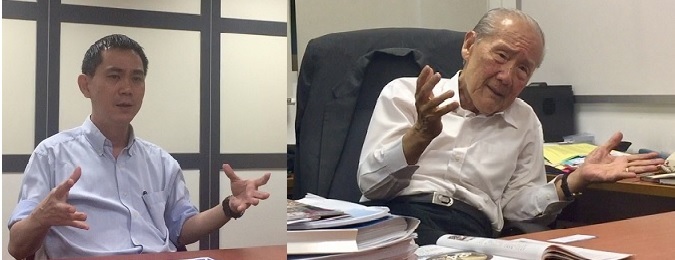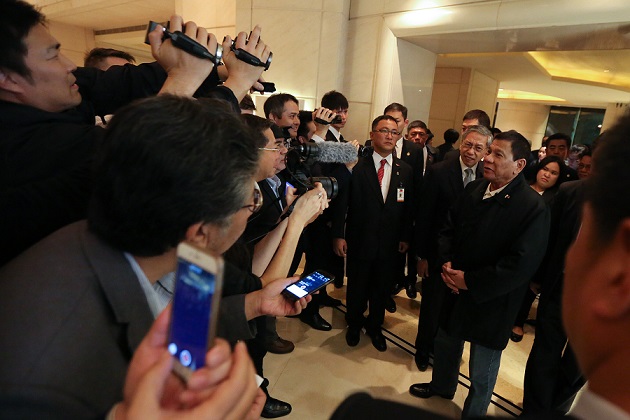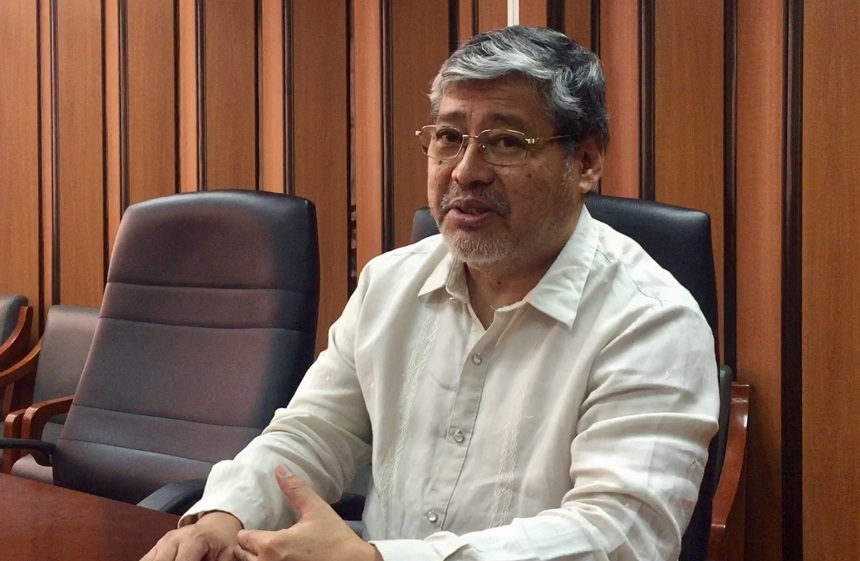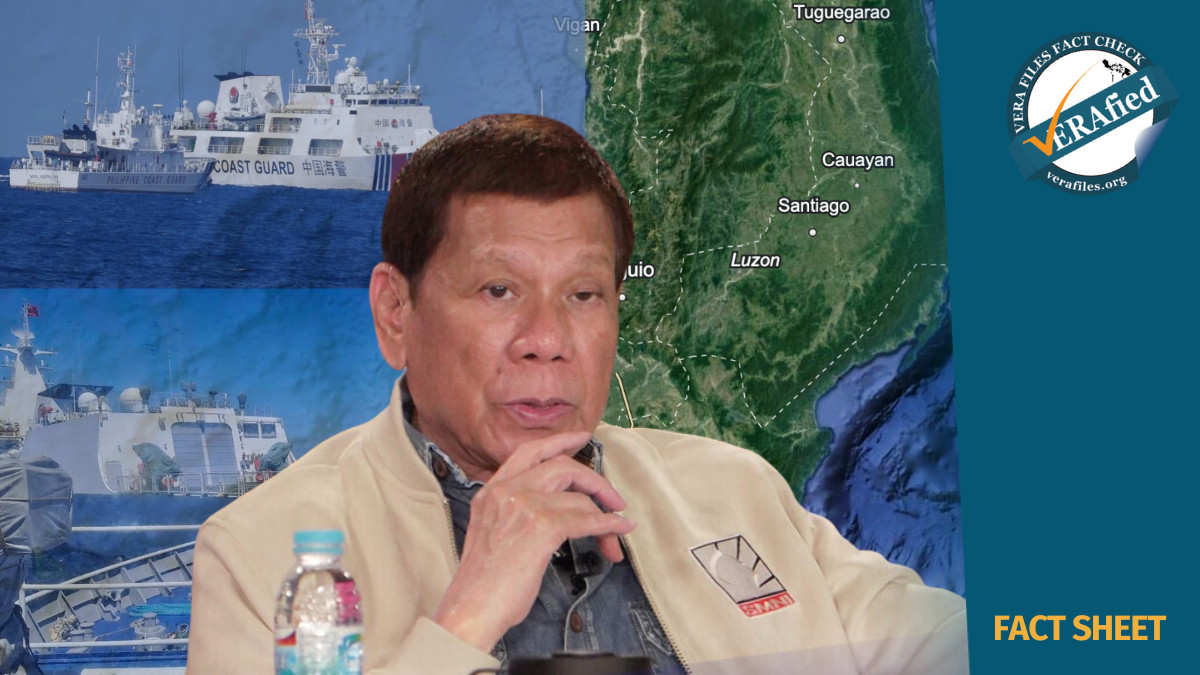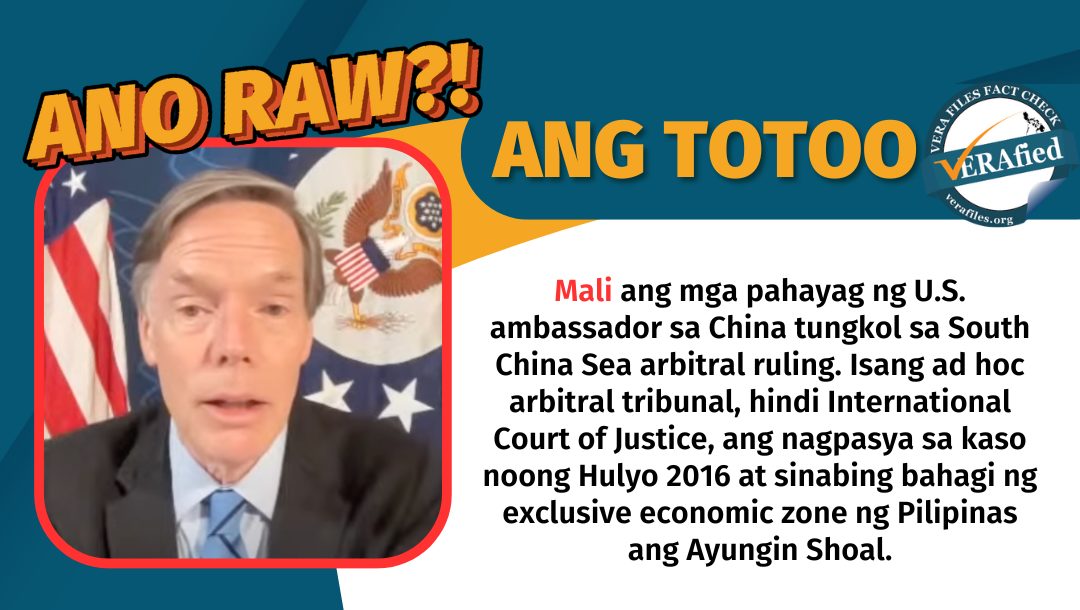President Rodrigo Duterte’s conciliatory approach toward China has reduced tensions in the South China Sea and is a positive development for the Association of Southeast Asian Nations (ASEAN), two foreign policy experts said.
The de-escalation of tensions in the SCS comes as the Philippines assumes chairmanship of ASEAN in 2017, coincidentally also the organization’s 50th anniversary. This de-escalation is likely to have a positive effect on the country’s ASEAN chairmanship and on ASEAN-China ties, said Dr. Tang Siew Mun and Prof. Wang Gungwu.
Tang heads the ASEAN Studies Centre at the Institute of Southeast Asian Studies in Singapore; Wang is a historian and chair of the East Asian Institute of the National University of Singapore. VERA Files interviewed the two experts separately during a recent visit to Singapore.
Departing from his predecessor’s hardline stance, Duterte rekindled warm relations with China and agreed to play down the ruling of the Permanent Court of Arbitration in The Hague, whch favored the Philippine position in the maritime dispute over some areas in the South China Sea claimed by six countries, four of them ASEAN members.
“I think all in all, ASEAN-China relations are on a better footing,” Tang said. “I think President Rodrigo Duterte deserves a lot of credit for de-escalating, changing the narrative.”
Tang added that the mood in ASEAN has changed. “I think China no longer fears that the Philippines would use the chairmanship as a platform to further its SCS agenda. I thinks it’s all positive for China and ASEAN because we don’t want the 50th anniversary to be defined by a break in relations between ASEAN and China because of the SCS,” he said.
Wang said China is very happy that Duterte is saying what he is saying about China and not embarrassing China by highlighting the arbitral judgment.
But the two experts also said they are wary about how the Philippines as chair will balance the interests between and among ASEAN and dialogue partners.
“As the chair, not just the Philippines but every chair, the first priority is to separate the national issues and national priorities from regional priorities,” Tang said.
“The whole notion of ASEAN centrality rests on ASEAN’s door being open to all major powers and to be relevant to all major powers which means equal engagement with everybody, that’s the core,” he added.
Tang stressed the importance of understanding ASEAN’s collective interest, and that majority of Southeast Asian countries have warmer and closer security ties with the US and that is part of their history, just like Philippines.
But ASEAN’s proximity to China has brought about closer economic ties, which is naturally how trade relationships function.
Wang said being neutral will not be easy. He warned of the possibility of ASEAN being forced to side with either one of the superpowers, US or China, if the SCS issue is not handled well. The real interest of ASEAN, he said, was to have the power to say yes or no to both together, as one voice, but that would be very difficult.
“As long as Duterte does not say too many outrageous things, they can handle it,” Wang said. “Don’t forget the foreign ministry professionals in 10 countries know each other very well. They are the ones that keep ASEAN going, the ones that can keep it under control. The leaders can do what they like, but the 10 sets of professionals from the foreign ministry of all member states are holding ASEAN together.”
Tang said Duterte brings a different “spark” in ASEAN that is positive. “Here you have a person who speaks his mind perhaps as ASEAN moves to the 50th anniversary. We need this kind of leadership spark to give us the impetus to rethink what ASEAN is,” he said.
Duterte is said to have made quite an impact when he visited various ASEAN capitals. He had a light moment with the King of Cambodia, did Karaoke diplomacy with the Prime Minister of Malaysia, shared durian and nasi lemak with the Singapore leader. Tang said this speaks volumes about the popularity of Duterte, and of the message he conveys, not just in the Philippines but in the region as well.
But Wang cautions about Duterte’s unpredictability.
“You look around, you can’t find anybody like him. He’s quite distinctive. And that’s what I mean by unpredictable,” Wang said. “It can mean good things and bad things. Unpredictable can mean uncertainty, can create uncertainty, whereas unpredictability from another point of view gives you undue advantage and you put people off and they don’t know what to expect of you so you get the advantage.”
Asked if this is a welcome approach, Wang said, “Welcome will be a wrong word, all uncertainties are never welcome. The world is uncertain enough so all of us want a bit more certainty.”
Both experts believe that like the new U.S President Donald Trump, Duterte brings a different kind of politics to the region: populism.
“Will the people of Southeast Asia buy into this kind of leadership? I think the jury is still out there. We never know. It’s like a new product coming to the market. You have to test it. But there is a danger, there is also a downside to populism because you can generate the hype, the excitement, the expectation. But if the leader fails to live up to expectations then you leave people disillusioned, “Tang said.
The experts noted that even as Duterte leans more towards China, his foreign policy direction is still vague. “It certainly looks as if he is reacting against the US… but it doesn’t mean he is pivoting anywhere else…. You don’t want to change one lot of masters for another lot of masters. If he is right in saying that America is behaving like masters towards him, you don’t want to change one for another, and you want to be free from all masters. That’s what independence would mean. So then apart from distancing from the US, nothing else is certain, not at this stage, “Wang said.
Duterte declared he would pursue an independent foreign policy after he lashed out at former President Barack Obama for calling him out on the issue of human rights related to the rising incidence of killings in connection with his anti-illegal drugs crusade.
Tang called for caution, and that “we should not buy into the sentiment to be anti-China.”
“China is a fact that we have to live with and deal with in the manner that we engage China and how China engages us,” he said.
Wang believes that if a united ASEAN can stand up to the both superpowers, there will be peace in the region.
Tang sees an opportunity for Philippines as chair of ASEAN to be a bridge to the US and China when it engages them in the East Asia Summit and ASEAN Regional Forum.
“If President Duterte now has a better chemistry with President Trump, perhaps the ASEAN chair can bring a kind of understanding or facilitate some understanding because President Duterte has good ties with the Chinese. So I think ASEAN can play the role of a mediator,” Tang said.
(This story was produced under the Reporting ASEAN Program and media series implemented by Probe Media Foundation Inc., supported by an ASEAN-Canada project, funded by the Government of Canada. It is also in partnership with Air Asia, which is supporting the travel of journalists and other participants, and in collaboration with the ASEAN Foundation.)
